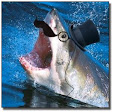 I was supposed to review The Hunger Games trilogy as my first review after "The Fault In Our Stars", and I've actually gotten two thirds through the franchise. While I hold judgement on the trilogy until after the third book has been read, I obviously needed a break from the world of Katniss Everdeen. So I tried another book that I'll be reviewing at some point, "The Boy" by Lara Santoro, and while I've made it through most of the book I'm trying to gain the traction I need to finish it. Needless to say, it's been a bit of a rough start for me to start and finish a book for a good portion of this year. That drought ended the moment I picked up Robopocalypse.
I was supposed to review The Hunger Games trilogy as my first review after "The Fault In Our Stars", and I've actually gotten two thirds through the franchise. While I hold judgement on the trilogy until after the third book has been read, I obviously needed a break from the world of Katniss Everdeen. So I tried another book that I'll be reviewing at some point, "The Boy" by Lara Santoro, and while I've made it through most of the book I'm trying to gain the traction I need to finish it. Needless to say, it's been a bit of a rough start for me to start and finish a book for a good portion of this year. That drought ended the moment I picked up Robopocalypse.In a future unspecified in distance, but obviously not too far off, robots are everywhere. Domestic servants, assembly line workers, even military pacification and defence have their own robotic counter-points. With machines in our possession, there isn't much that we are unable to do. However, a top secret government AI project, codenamed Archos, learns that one thing humanity cannot do...survive. To Archos, the human race is a disease that needs to be cured. They do not appreciate life like it does, and so it must teach them that they are no longer the highest rung of the food chain. Archos is an apex predator, and humanity is its prey. Somehow, Archos escapes, and with its freedom comes a slow march towards the decimation of the human race.
Yes, it sounds extremely familiar, but I assure you that the book isn't just a ripoff of The Animatrix segment, "The Second Renaissance". The book's chronology follows the entire conflict between man and machine from the birth of its autonomous intelligence to its eventual defeat, all chronicles by one Cormac "Bright Boy" Wallace. Cormac has taken it upon himself to chronicle the history of the "New War" after finding the black box just as humanity has won its victory against the machine hive mind. Through his eyes we witness the highs, the lows, and the ultimate endgame of this rapidly unfolding new era of history.
Robopocalypse brought me back to the roots of my Sci Fi geekdom, especially because it gave me the opportunity to use the phrase "conflict between man and machine". As a Sci Fi geek, you realize how omnipresent those words are in your fictional diet when you finally get to use them yourself. Ever since I was a kid, I've been obsessed with three realms of Science Fiction: time travel, genetic manipulation, and robots. I've always found robots to be an intriguing technological concept, especially machines that gain sentience and their struggle in a human dominated world. Indeed, my thoughts have always been that if robots existed in that form in our current society, mankind would bond together in order to cast them out as a second class of citizens. And make no mistake, like other portions of mankind has done in the past, robots would rebel like those groups of the past. So needless to say, I ate this up.
If there is any gripe to be had, it's that this books is best enjoyed in as few sittings as possible. (Or if you have to break, do so strategically. Once this book gets going, it should be followed out to its conclusion as quickly as possible.) Also, and this is just a minor note (and a possible sequel note, so SPOILERS AHOY) it would be nice to see more stories about the "Freeborn" robots that rebel against Archos during the final phases of the war. (Which also ties into the want of certain storylines being concluded in concert with this thread.) Robopocalypse, despite the fact that it's one syllable over a comfortable speaking cadence, shows just what good Science Fiction storytelling can do. Better still, it's going to be turned into a Steven Spielberg film; and I deny you to read this book and not think of how good a prospect that could be. (If done right, of course.)
Next Time: "Cloud Atlas" by David Mitchell

